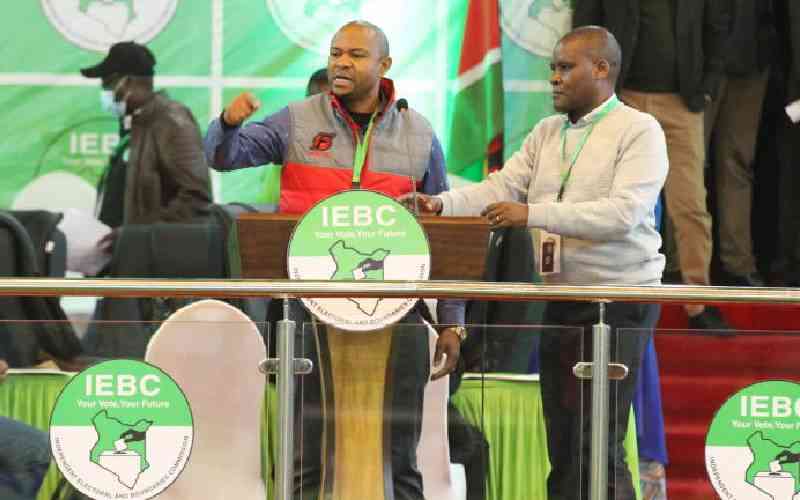×
The Standard e-Paper
Smart Minds Choose Us

Azimio leader Raila Odinga's chief agent at last year's presidential election has finally opened up on the intrigues that cost him the victory, chief among being the 'tower of babel' situation obtaining at the Azimio top brass.
In his new book - Why Baba is not the 5th - lawyer Saitabao Ole Kanchory says the electoral fraud that Raila is fronting in the ongoing bipartisan process, would have been stopped had the Command Centre worked as expected and the main candidate paid attention to details.